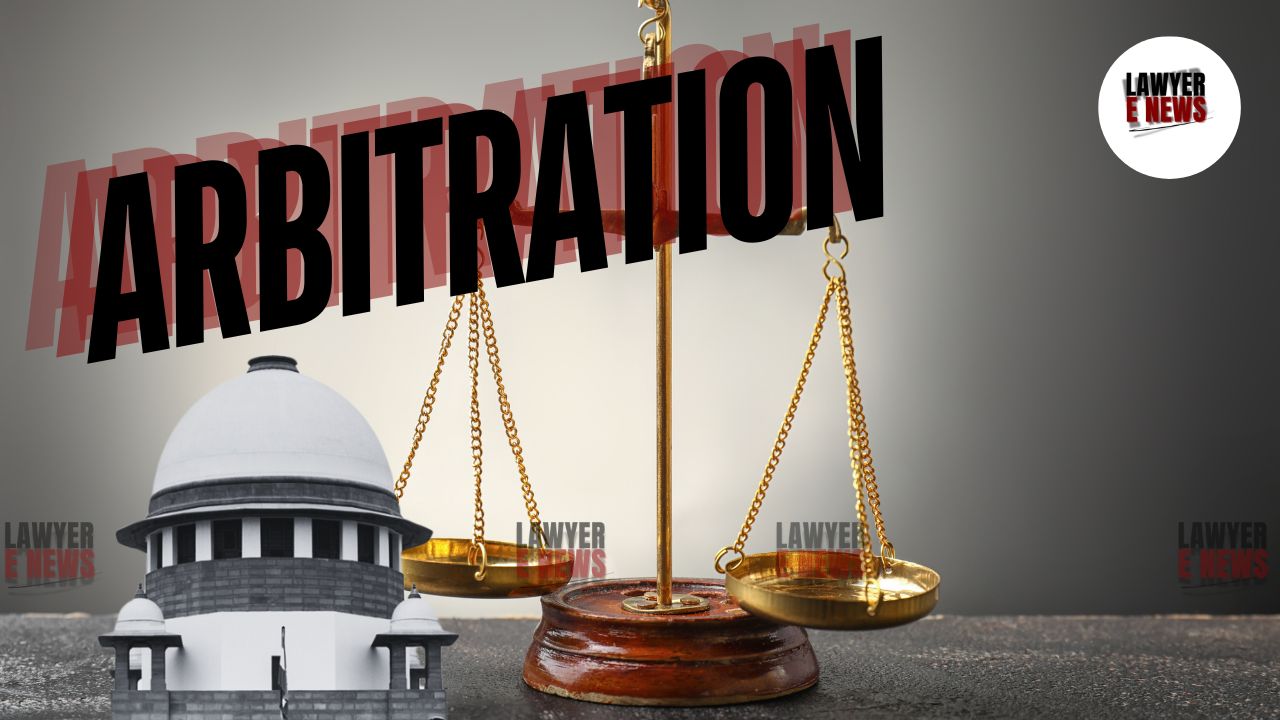-
by sayum
14 February 2026 2:22 PM



On 09 September 2024, In a significant judgment, the Supreme Court of India has appointed an arbitrator to resolve a commercial dispute between Cox & Kings Ltd. and SAP India Pvt. Ltd. The judgment, delivered by a bench comprising Chief Justice Dr. D.Y. Chandrachud, and Justices J.B. Pardiwala and Manoj Misra, involved the application of the Group of Companies Doctrine to non-signatories in arbitration agreements. The bench, while referring the case to arbitration, deferred the issue of whether SAP SE, the German parent company of SAP India, could be bound by the arbitration agreement, leaving that decision to the arbitral tribunal.
Cox & Kings Ltd., a major travel company, entered into multiple agreements with SAP India Pvt. Ltd. in 2015, including a General Terms and Conditions Agreement and a Software License Agreement for the implementation of SAP's Hybris Software. The software was expected to be customized to suit Cox & Kings' needs, but significant delays and issues arose, leading to disputes between the parties. Despite several correspondences and assurances, the project was eventually terminated in 2016.
Following the termination, SAP India invoked arbitration under the General Terms and Conditions Agreement. Cox & Kings, in turn, filed counterclaims and sought to involve SAP SE, SAP India's parent company, in the arbitration proceedings. The primary issue in dispute was whether SAP SE, which was not a direct signatory to the agreements, could be made a party to the arbitration under the Group of Companies Doctrine.
Scope of Judicial Interference: The Supreme Court reiterated its limited role at the stage of appointing an arbitrator, citing that its intervention should only be to ensure the "prima facie" existence of an arbitration agreement. "The referral court should not unnecessarily interfere with arbitration proceedings, and rather allow the Arbitral Tribunal to exercise its primary jurisdiction," the court observed, citing its earlier decisions.
Justice Pardiwala emphasized that the court is not required to delve into the merits of whether a non-signatory can be bound by the arbitration agreement. Instead, it is up to the arbitral tribunal to decide the issue, in line with the principle of competence-competence under Section 16 of the Arbitration Act.
Group of Companies Doctrine: The case brought into focus the controversial Group of Companies Doctrine, which had been applied in previous cases to bind non-signatories to arbitration agreements when they formed part of a closely connected corporate group. In this case, Cox & Kings argued that SAP SE, despite not being a formal signatory, was integrally involved in the contract's execution through its subsidiary SAP India, thereby making it a necessary party to the arbitration.
While acknowledging the complexity of the issue, the court refrained from making a definitive ruling. The bench noted that the matter of whether SAP SE should be bound by the arbitration agreement would be best decided by the arbitral tribunal after examining the evidence and applying legal doctrines such as implied consent and piercing the corporate veil.
Arbitrator Appointment: The court appointed former Bombay High Court Chief Justice Mohit S. Shah as the sole arbitrator to adjudicate the disputes between Cox & Kings and SAP India. The tribunal would also be responsible for deciding whether SAP SE, the parent company, is bound by the arbitration agreement.
Legal Reasoning: The court’s decision relied heavily on precedents that restrict the judiciary's role in arbitration proceedings to merely ensuring the existence of an arbitration agreement, leaving substantive issues for the tribunal to resolve. The court cited the Constitution Bench decision in Cox & Kings Ltd. v. SAP India Pvt. Ltd. & Anr., which reinforced that referral courts should not engage in intricate fact-finding or decide on the merits of a case at the stage of appointment of arbitrators.
In its reasoning, the bench explained that the principles of minimal judicial intervention in arbitration are crucial for upholding the autonomy of the arbitration process, a cornerstone of the Arbitration and Conciliation Act, 1996.
Chief Justice Chandrachud, writing for the bench, remarked, “The referral court should not trammel the arbitral tribunal's authority to rule on its own jurisdiction. The tribunal, equipped with a broader examination of evidence, is better suited to decide whether the Group of Companies Doctrine applies to bind non-signatories.”
Justice Pardiwala added, “The arbitral tribunal is the preferred first authority to look into the questions of arbitrability and jurisdiction. Courts must refrain from venturing into contested questions involving complex facts at the referral stage.”
The Supreme Court’s judgment emphasizes the judiciary's restrained role in arbitration, particularly in disputes involving non-signatories like SAP SE. The decision paves the way for an arbitral tribunal to examine the application of the Group of Companies Doctrine in commercial disputes involving complex corporate structures. With the tribunal now tasked with resolving the substantive issues, the judgment is expected to clarify the extent to which non-signatories can be bound by arbitration agreements in India, potentially shaping future disputes in the context of corporate group arbitration.
Date of Decision: September 9, 2024
Cox & Kings Ltd. vs SAP India Pvt. Ltd. & Anr.
